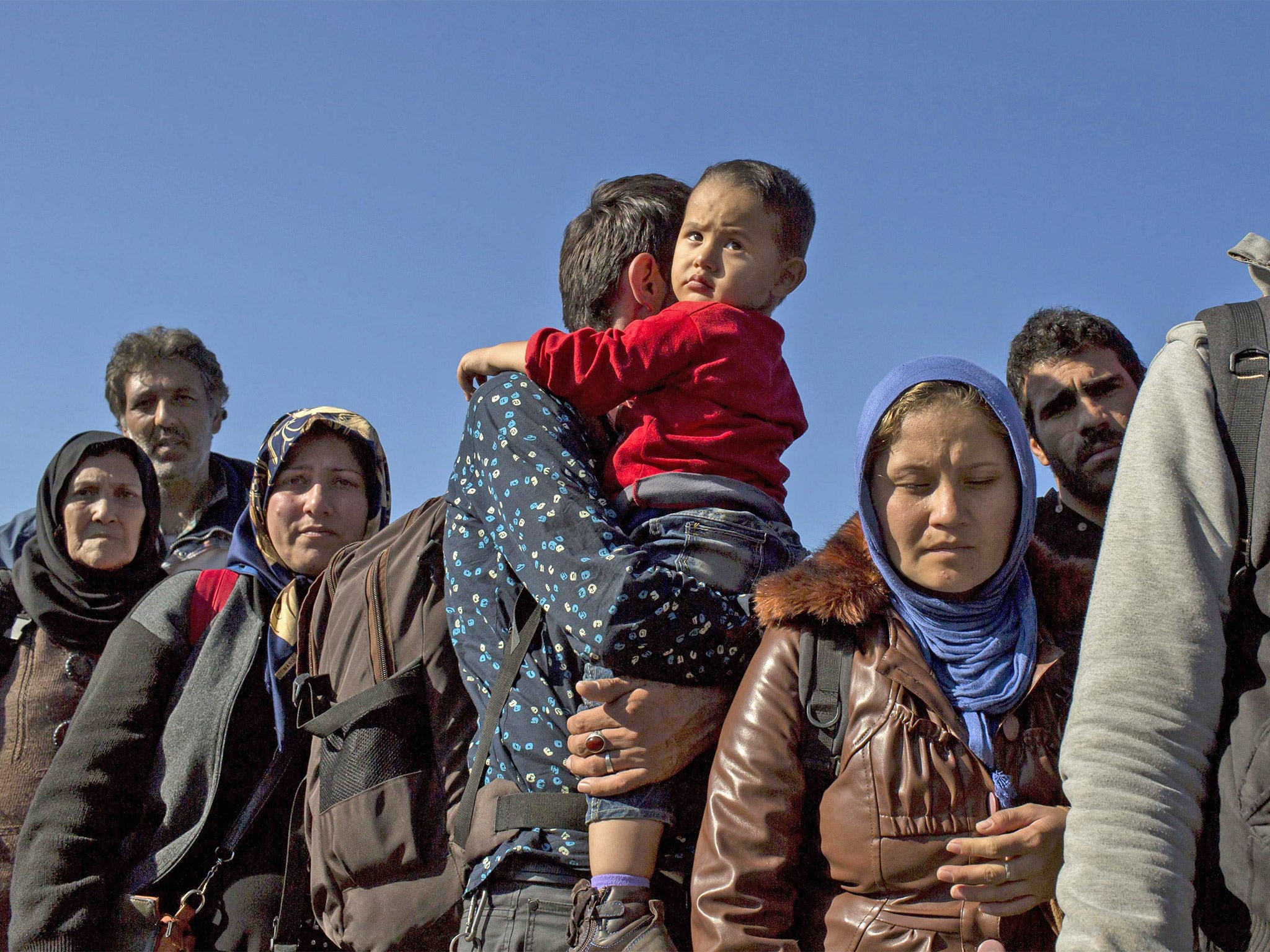Refugee crisis: EU takes first steps to bring order to its asylum policy
After months of inaction, firm proposals emerge amid splits and acrimony at Brussels summit

European Union leaders meeting in Brussels for an emergency summit struggled to maintain a united front as they tried to forge a co-ordinated strategy to deal with the refugee crisis.
Meeting a day after EU interior ministers agreed a controversial plan to relocate 120,000 asylum seekers from Greece and Italy to other countries, the leaders looked at broader responses to the influx of migrants, including strengthening EU border agency Frontex, the European Asylum Office and EU law enforcement agency Europol.
They also drew up measures to support Turkey and other countries around Syria, with plans for an extra €1bn (£735m) in funding to the United Nations and other international agencies to deal with humanitarian needs.
EU Council President Donald Tusk, chairing the summit, warned of the “brutal reality” facing Europe, with up to 6,000 people seeking refuge on a daily basis. Acknowledging internal EU acrimony, he said: “We need to end the cycle of mutual recriminations and misunderstandings.”
The most urgent issue facing the leaders, Mr Tusk said, was regaining control of the EU’s external borders. “Otherwise it does not make sense to even speak of a common European migration policy,” he said. There is no single solution to the refugee crisis, Mr Tusk added, as he urged leaders to focus on stepping up efforts to identify, register and fingerprint asylum-seekers, the better to relocate or return them to their countries of origin.
Prime Minister David Cameron announced at the summit that the UK would commit another £100m of aid for Syria, including £40m for the UN’s cash-strapped World Food Programme. “We must make sure people in refugee camps are fed and looked after, not least to help them but also to stop people wanting to make this very dangerous journey to Europe,” he said.
German Chancellor Angela Merkel said Europe was “strong enough” to find a solution to the crisis, adding that it was an opportunity for the EU to speak louder on the world stage. “Finding a solution also means that the EU has to become more active in terms of foreign policy. But I believe the EU has the power to do so,” she said.
The vote on the binding plan to relocate 120,000 refugees was carried despite fierce opposition from the Czech Republic, Hungary, Romania and Slovakia. Leaders of the outvoted members are still angry. Hungarian Prime Minister Viktor Orban accused Germany of “moral imperialism”, while Slovak Prime Minister Robert Fico insisted he would not “respect this diktat of the majority” and would stage a legal challenge.
Meanwhile the European Commission unveiled new proposals to send support teams to migrant hotspots and restore free movement in the EU’s passport-free Schengen area, where some members have introduced border controls. The Commission also earmarked an €1.7bn (£1.24bn) in emergency aid for EU countries struggling with migrant arrivals and for refugee camps in Turkey, Lebanon and Syria itself.
It warned 19 EU members, including France and Germany, that they face legal action for failing to follow procedures. Commission Vice-President Frans Timmermans said some states were not applying the laws to register asylum seekers. “Our common European asylum system can only work if everyone plays by the rules,” Mr Timmermans said.
The UN says almost 480,000 people have arrived by boat in Europe so far this year, while more than 30,000 refugees entered Croatia from Serbia in the week since Hungary sealed its southern border.
Join our commenting forum
Join thought-provoking conversations, follow other Independent readers and see their replies
Comments
Bookmark popover
Removed from bookmarks